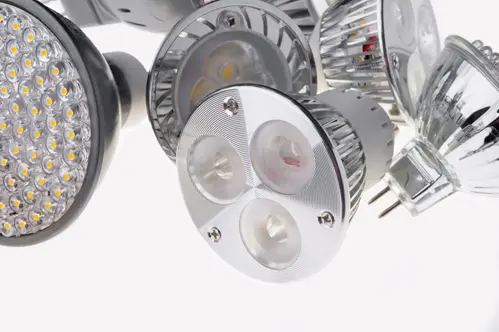Recent improvements in LED technology have changed the global lighting market, according to Forbes. The green lighting solutions are now even brighter, consume less energy and have a longer lifespan former LEDs. As a result, industrial, commercial and residential customers are adopting LEDs.
General Electric, has reported a strong growth to its LED lighting business because of the market's technological improvements. GE has conducted research and development work to improve it's LED lighting technology, further spurring LED adoption among customers, the article stated. GE generated $7.4 billion of its $147 billion revenues in 2012 from GE Lighting.
LEDs currently account for 18 percent of the $66 billion global lighting market and that number is expected to rise to 70 percent by 2020, Forbes reported. By then, forecasters say the global lighting market could reach as much as $100 billion.
Keeping up with the evolving LED lighting market, the LED segment at GE also reported a 35 percent growth rate in 2012. The company expects further growth through 2013 with new components like LED chips and packages integrating thermals, optics and other control systems to give the lights extra efficiency, according to Forbes.
GE has taken on major projects to highlight its capabilities, including lighting projects at the Marriott hotel chain where it installed lighting in 2 million square feet of parking garages and parking lots. GE also integrated LED systems with security cameras for a 70 percent energy savings. Another big project the company undertook was in Las Vegas where GE installed LED streetlights to help the city save $1.7 million on its energy costs and $1 million on maintenance expenses.
The evolution of energy efficiency
A recent report by Greentech Media discusses how energy efficiency is evolving into "intelligent efficiency." Energy-efficiency solutions are now found in almost every building across the country and being used by companies and organizations who want to take advantage of the available cost savings with the upgrades.
"In the past, energy efficiency was seen as a discrete improvement in devices," said Skip Laitner, an economist specializing in energy efficiency. "But information technology is taking it to the next level, where we are thinking dynamically, holistically, and system-wide."
The report notes how an evolution in technology is changing energy efficiency and increasing adoption of applications including energy-efficient lighting. Prices for energy-efficient items are going down and consumers from all markets are finding affordability in the products.





